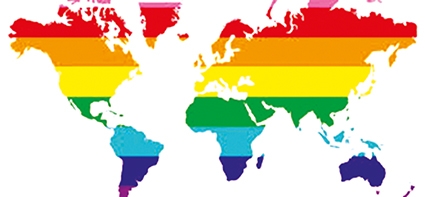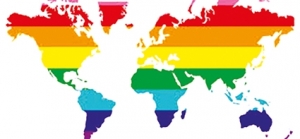Accepting the LGBT
Alocal LGBT rights organization, Equality Movement, said that its activists can no longer come to their office due to fear of their neighbors. Levan Berianidze, executive director of Equality Movement said that they moved in February 2018, and at that location some members of the neighboring family have often made homophobic and aggressive remarks, trying to provoke a conflict.
On September 28, the activists were conversing in the backyard of their office when one of these neighbors came out and started insulting them. To avoid escalation, the employees left the backyard and decided to leave. But as they were locking the doors, several of their neighbors reportedly assaulted them, trying to beat them and grabbing one of them by the throat. Berianidze said one of the neighbors even pulled out a firearm, but was restrained by another.
Berianidze said that police have launched investigation on charges of violence, and they are hoping for a thorough and unbiased investigation; however, so far the police have not detained any of the assailants, and despite assurances of security being given to the activists, 17 activists who work at this office say they no longer feel safe.
“We have no guarantees that the neighbors won’t burst into the office again or ambush and beat our employees,”said Berianidze.
The Interior Ministry released a statement on September 29, saying that an investigation has been launched under Article 126 of the Criminal Code of Georgia. The Police stated that a “verbal altercation” started between several activists of the Equality Movement and a woman living in the same neighborhood, who complained about them being loud. This resulted in a confrontation between the activists and the woman’s relative who is said to have been hospitalized following that confrontation, however they have yet to provide any specific details regarding this claim. These statements resulted in 14 civil society organizations releasing a joint statement on October 2 slamming police for an “indifferent attitude”. They feel that the police see the incident as a mere scuffle between two sides and not an assault.
“Such a statement from the Ministry during the opening days of the investigation, without proper examination, substantially reduces trust towards the ongoing investigation,” the statement reads.
Although the LGBT members have publically been accepted in Georgia on a legislative level, many feel this is not the actual situation. One of the best-known and most recent examples for this is the situation of Guram Kashia, captain of the Georgian national football team. Despite being shown support from politicians of the ruling party Georgian Dream and opposition after he stated that homophobia is unacceptable, members of the general public insulted Kashia, resulting in him shutting down his public social media.
UN Independent Expert on the Protection against Violence and Discrimination based on Sexual Orientation and Gender Identity, Victor Madrigal-Borloz, is in Georgia until October 5 to evaluate Georgia’s current human rights standards and laws in place that fight discrimination and violence against LGBT people.
A protest rally against homophobia and in support of Guram Kashia should have taken place on September 9th but never did, due to ultra-nationalist group Georgian March wanting to use it as an opportunity to spread homophobic statements and cause chaos. Going on past events this year alone, counter rallies to LGBT events are usually organized by either the church or ultra-nationalists.
By Shawn Wayne












